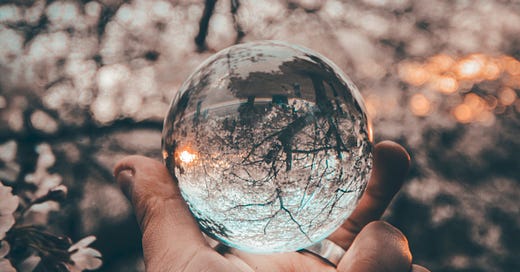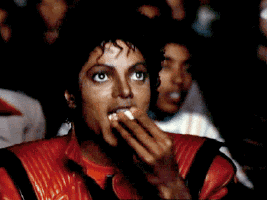Today is Trump’s last day in power. We are on pardon watch.
Biggest remaining mystery: will he pardon himself? What about his family?
Tomorrow is Biden’s inaugural and the transition will be complete, despite all the drama in the middle.
Therefore, tomorrow’s update will be the last article in the T2B series.
A Mirror to the World
The virus has acted as a mirror to our broken world, revealing all its fault lines. It’s disrupted a presidential election, it’s made the poor poorer and its increased global conflict. In this second to last update, I am going to speculate on the long term impact of the virus on the US along three lines:
Economy
Society
Geopolitics
As I said, these are speculations. I don’t want any of them coming true since they are all pessimistic conclusions.
Economy and Inequality
Speculation: The pandemic will increase inequality.
In a knowledge economy, profits are captured by companies and individuals who have access to the means of knowledge production. In particular, the tech industry has gone from being a cute outsider to the heavyweight. If you add finance to the list of knowledge industry (it’s the East Coast industry that hires PhDs as opposed to tech, which is the West Coast industry that hires PhDs), most of the value produced in the last two decades has gone to the winners and owners of knowledge capital.
The pandemic has accelerated that trend, with the valuation of Amazon, Tesla and others going through the roof as millions of ordinary Americans struggle to pay the bills. It’s not just corporate valuations though. The pandemic has rewarded the ways of life of knowledge creators by allowing them to work from home, getting rid of commutes and keeping their jobs secure.
Summary: The pandemic has increased the gap between the knows and the know-nots.
The class divide is now a knowledge divide as well, with faith in science and facts on one side and mistrust of science and facts on the other. Which brings me to:
Trust and Society
Speculation: With the two classes living in alternate realities (and not just alternate economies), mistrust is going to increase.
People with college degrees live longer lives, have securer careers and have more stable families with lower divorce rates and fewer children born in single parent families. Those without access to the knowledge economy are being ruined at work and at home.
Robots don’t get sick, and so it makes it even more compelling to replace low wage workers with machines. Of course, these new developments will hurt workers of color more than working class white people, but it’s also accelerating the conversion of working class white people into a permanent under class.
The lack of masks, the reluctance to vaccinate etc is also a form of resistance, and shows that retreat into a reason denying, reactionary response is still a form of struggle and makes it possible for us to understand why its leaders are seen as heroes.
Summary: just as we celebrate the speed at which a vaccine has been developed and tested, we should be worried about the speed at which an alternate reality has emerged.
Geopolitics
Speculation: there’s no avoiding the clash with China.
Once upon a time, American elites thought that China will be fully absorbed into the ‘one world system’ with the US on top as a benevolent leader and major penalties for those who disobeyed (Serbia, Afghanistan, Iraq, Libya, Syria etc).
The 2008 crisis was the first hit against that model of hegemony, with the internal contradictions of the globalized capitalist system creating the space for China to strike out on its own.
The pandemic is the second strike. That it arose in China is a matter of great anger in the West. That China has fared better than the West (especially the US) despite being the origin of the disease has turned that anger into fury.
How this conflict will play out in the future remains to be seen, but I wouldn’t be surprised if something like Huntington’s ‘Clash of Civilizations’ will be retrofitted to the rivalry after the fact on both sides. I don’t think there are distinct civilizations whose values and mechanisms of power are permanently inaccessible to other civilizations, but it’s a useful concept for those who want to push the rivalry. And just as Republicans and Democrats don’t talk to each other anymore, I am betting on the cognitive wall between China and the West increasing in height.
Summary: The West hasn’t seen the Chinese as the enemy in the modern era - they are rivals, and potentially troublemakers, but never the enemy. That might be about to change, especially because conflict with China might be the easiest way to build unity in America.
Conclusion
No one could have predicted the Corona pandemic in its details, even though public health experts have been sounding the alarm for decades. Nevertheless, we can confidently say that humanity has entered a new era in which everything from the cellular to the atmospheric is both the constant backdrop and occasionally the lead actor in human affairs. While it’s important to single out specific ‘wicked problems’ such as the pandemic or climate change, it’s equally important to recognize the planetary nature of the human condition from now onward.





